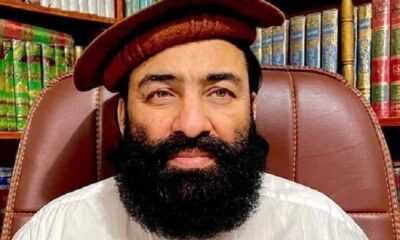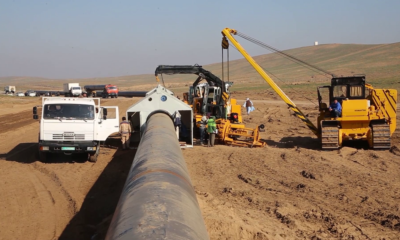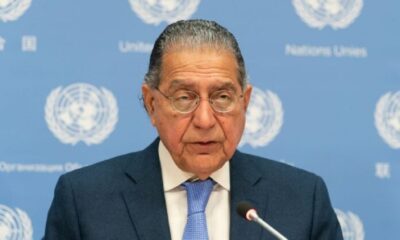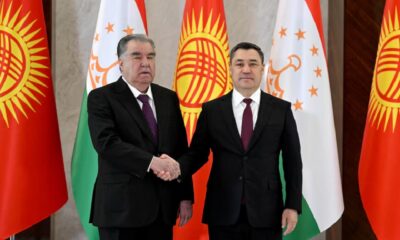Latest News
A new plan to ‘fix the war’ with a Bonn-style conference: AAN report
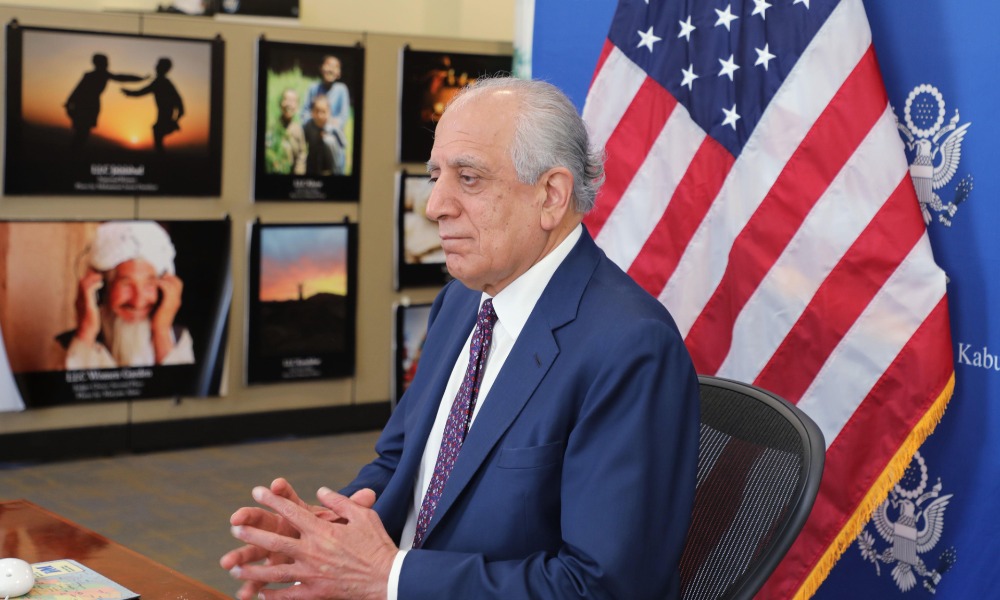
US peace envoy Zalmay Khalilzad has in the past week proposed the possibility of a Bonn-type conference that could cancel or sideline the intra-Afghan peace talks currently underway in Doha.
According to Afghanistan Analysts Network (AAN), “Bonn 2” appears to have been discussed in a number of capitals and with various Afghan leaders.
The proposal appears aimed at ensuring a US troop withdrawal that would not look like Washington is cutting and running, AAN stated adding that any new power-sharing agreement reached as a ‘quick fix’ to the conflict would be inherently risky.
This could include increased conflict and the breaking down and loss of whatever stability and systems Afghanistan now enjoys.
AAN’s Thomas Ruttig, who was at the first Bonn conference as part of the UN team, argues that the situation in Afghanistan in 2021 is anyway so very different from those in 2001 that calling for a Bonn 2 conference to resolve the conflict is disingenuous.
Ruttig states that according to sources, the US envoy told Afghan politicians that the peace talks in Doha will be sidelined and that a Bonn Conference-style meeting will be held at the international level to discuss the prospect of a participatory government that would include the Taliban.
“A grand international conference that will be similar to the Bonn Conference will be held, in which the Taliban and the republic side will participate at the leadership level. At the same time, the international community, including the United States and the regional countries, will reach a political agreement that will take its legitimacy from the international community.
“However, the national legitimacy (agreement of the potential conference) would take its authority from the traditional Loya Jirga,” said Shahzada Massoud, a close aide to former president Hamid Karzai, AAN reported.
AAN stated that Khalilzad had reportedly carried a special letter from the US Secretary of State Antony Blinken to President Ashraf Ghani and Abdullah Abdullah, Chairman of the High Council for National Reconciliation (HCNR), calling on them “to speed up the peace process and build an internal consensus to negotiate with the Taliban on a new level,” and to prepare for a “Bonn model” conference with the Taliban, hosted by Turkey in Ankara “as soon as possible.”
According to the report, the new plan seems inspired by the desire to meet the short, albeit formally conditional, timeline that was established by the year-old US-Taliban agreement for the withdrawal of US and other troops by 1 May 2021.
Khalilzad’s hope, apparently, is that a Bonn-style conference could result in a quick power-sharing agreement (or, similarly to the approach to that before the February 2020 Doha deal with a Taliban, with a ‘framework’ agreement as a first step).
His proposal would appear to mean the end or sidelining of the intra-Afghan talks in Doha where the Taliban and Islamic Republic of Afghanistan (IRoA) have yet to agree on an agenda, AAN reported.
AAN stated that his proposal might be primarily aimed at providing cover for the US troop withdrawal by 1 May, or alternatively include conditions for a delayed final withdrawal. Such an agreement would also allow the new US government to sidestep the thorny issue of whether the Taliban have fulfilled their commitments to the bilateral February 2020 Doha deal, with regard to cutting ties with al-Qaeda.
AAN stated that at least ten political leaders have agreed to the plan: President Ashraf Ghani, along with his two deputies, Amrullah Saleh and Sarwar Danesh; Abdullah Abdullah; former president Hamid Karzai and factional leaders Muhammad Mohaqeq, Muhammad Karim Khalili, Abdul Rashid Dostum, Abdul Rab Rasul Sayyaf and Yunes Qanuni.
The plan reported includes a handover of power from the current government to a transitional one, after “agreement on basic issues” in Ankara and in the presence of US and NATO military forces “in order to maintain political stability.”
The transitional government, reported AAN, could include leaders from Afghanistan and the Taliban but it is not clear how a transitional administration would become a permanent government.
Before Khalilzad arrived in Kabul last week, he had a stopover in Berlin. AAN reported it is likely Khalilzad discussed this plan with Berlin before heading to Afghanistan.
According to AAN, a first indirect reaction from the Afghan government to the Bonn 2 proposal came late on 3 March, from National Security Adviser Hamdullah Moheb, who said the government was “holding discussions about a wide range of alternatives” with various factions to achieve peace in the country.
He said any option needed “guarantees” from the international community and the Taliban. On 6 March, however, when opening the spring session of the Afghan parliament, Ghani indirectly rejected parts of the new US plan in a speech, particularly ideas of a non-elected government.
He reiterated that the transfer of power through elections was “a non-negotiable principle for us” and, tha the constitution would determine the country’s future, rather than other people’s plans.
He also said, however, that he was “ready to discuss the holding of a free, transparent, and countrywide election under the management of the international community” and that “[w]e can also talk about a date and reach a conclusion.”
Ghani did not refer to the idea of holding a new international conference.
AAN reported that it is interesting that Khalilzad chose to frame his plan as a ‘Bonn-style’ agreement, deliberately suggesting that it is possible to turn back history, press the restart button, deal the cards again – largely with the same factions, in some cases even the same individuals, but this time, with the Taliban at the table.
AAN stated that many authors and commentators, in hindsight, have described the fact that the Taliban were not included in Bonn 1 as one of its main mistakes.
In conclusion, AAN reported that the plan to hold a new “Bonn-style conference” prioritises US interests and timelines even more than the Doha agreement did.
Even if the Taliban agreed to a ‘Bonn 2 formula’, this would leave the causes of conflict unaddressed. It would hand the implementation of an agreement to parties who so far and to varying degrees have not been willing to seriously negotiate with each other or share power.
To only have armed factions at the negotiating table would again undercut the principle of broad participation, including of women’s organisations and other civil society groups, and would limit the chances of a peaceful future. It would repeat a major mistake of Bonn 1 where civilian political forces were not invited to the table, AAN reported.
However, if both sides could be brought to agree to a deal and even some form of truce, and troops withdrew, with the departing soldiers would go much of the remaining international attention on Afghanistan.
AAN reported that international powers would then have even less leverage on the Afghan parties, but might also have less interest, once their military engagement was over.
Latest News
Mines ministry says work on TAPI project to speed up as weather improves
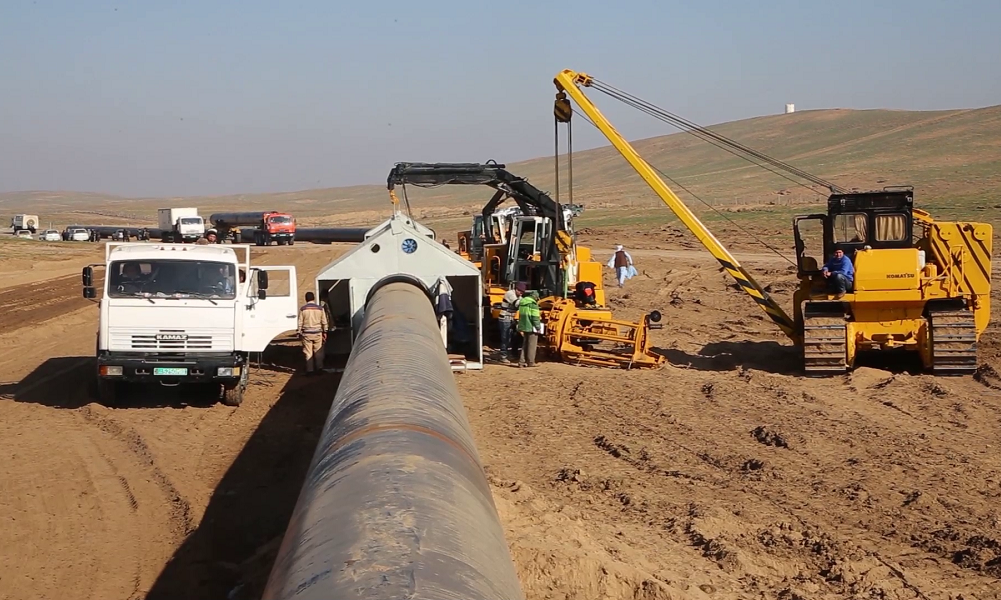
Homayoun Afghan, the spokesperson for the Ministry of Mines and Petroleum, says with rising temperatures in the country, work on the TAPI pipeline project will accelerate. He added that all partners involved in the TAPI project are eager to expedite progress.
He emphasized that since the launch of the project’s practical work, 1,700 kilometers of the TAPI gas pipeline route have been surveyed, and 9 kilometers of pipeline have already been laid within Afghan territory.
The ministry officials stated that the expansion of the TAPI project will create hundreds of new jobs for citizens in operational, security, technical, and logistical sectors of the project.
“First, this project will help create jobs for Afghans. Second, it will strengthen Afghanistan’s economy. Third, we can derive direct positive benefits from this project,” said Mohammad Bani Afghan, an economic expert.
Economic experts further highlighted that once the project is operational, Afghanistan is expected to earn approximately $400 million annually in transit fees. Additionally, the project will spur economic growth and reduce unemployment rates in the country.
Latest News
Pakistan to file complaint with UN against IEA and India
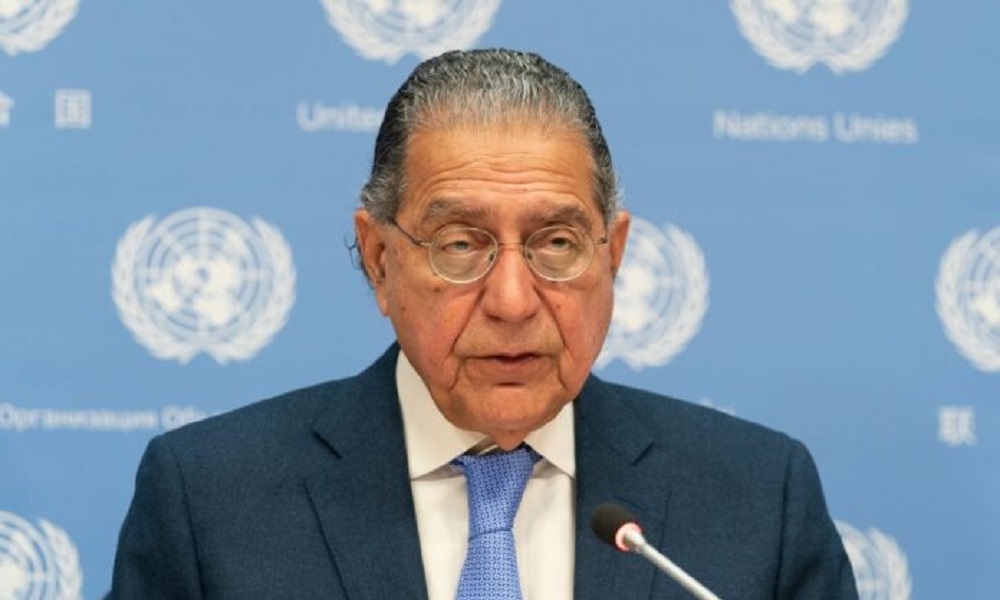
Pakistan’s Permanent Representative to the United Nations, Munir Akram, says Islamabad will submit a complaint to the UN against the Islamic Emirate of Afghanistan (IEA) and India for “supporting terrorism.”
In an interview with Pakistani media, Akram alleged that IEA was involved in the attack on the Jaffar Express train.
He claimed, “There is evidence against the Taliban government [Islamic Emirate]. This time, we have traced communications and compiled evidence that we will certainly present. Even previously, if you review the latest report by the UN’s Counter-Terrorism Monitoring Team, it was clear that terrorism originates from Afghanistan, and the government there is involved in this matter.”
The Pakistani diplomat further accused India of using Afghan soil to promote terrorism.
Meanwhile, Pakistan’s military spokesperson, Ahmed Sharif Chaudhry, asserted during a press briefing that terrorists involved in the recent train incident and prior attacks had used weapons of Indian and Afghan origin.
“The terrorists behind the train attack in Balochistan and previous incidents used Indian-made weapons and arms left behind in Afghanistan. We must recognize that the primary backer of this Balochistan terrorist attack and past events is our eastern neighbor [India]. Militants based in Afghanistan have consistently fueled instability in Pakistan,” said Chaudhry.
However, experts argue that Pakistani authorities, grappling with weak governance in ensuring citizen security, are attempting to deflect blame onto Afghanistan to obscure their own inefficiencies.
Meanwhile, the Islamic Emirate has strongly denied any involvement in Pakistan’s security challenges, particularly the recent Balochistan attack, dismissing the allegations as baseless.
IEA has repeatedly urged Pakistani officials not to attribute their domestic security failures to Afghanistan.
Latest News
Trump says he would have kept Bagram Air Base

US President Donald Trump has once again said that if he had remained the president, Bagram Air Base in Afghanistan would have been kept due to its proximity to China.
In his speech on Friday at the US Department of Justice, Trump claimed that Bagram Airfield is now occupied by China.
He also said that the withdrawal of the United States from Afghanistan in the way it was done was “the most humiliating time” in the history of the United States.
“I would have been out faster than them. I was the one that got it down to the right level. but we would have kept Bagram, the big Air Force base. We would have kept it. Right now, China occupies Bagram and the reason we would have kept it is because it is one hour away from where China has and builds its nuclear missiles and weapons,” Trump said.
“And they gave that up in the dark of night, they left the lights on and they left the dogs behind. By the way, a lot of people say what about all the dogs. They had a lot of dogs and they left the dogs behind and what a shame, what a shame. The way we got out, I think it was the most humiliating time in the history of our country,” he added.
Trump said that if he had remained the president, the US would have left Afghanistan “with dignity and strength.”
He suggested the way the US withdrew from Afghanistan probably got Russia attack Ukraine.
The Islamic Emirate has previously rejected Trump’s claim that China has seized Bagram Airfield.
-
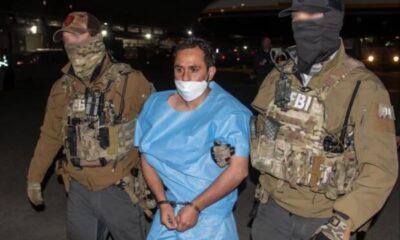
 Latest News4 days ago
Latest News4 days agoKabul Airport bombing suspect not a top-level planner of deadly attack: FBI
-
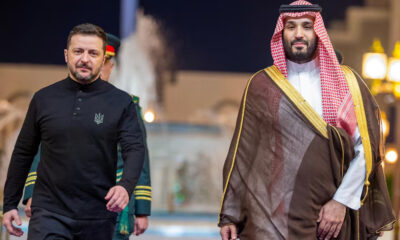
 World5 days ago
World5 days agoZelenskiy in Saudi Arabia as US voices hope for Ukraine peace talks
-
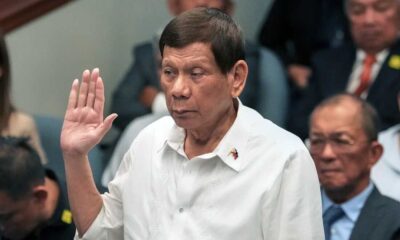
 World4 days ago
World4 days agoPhilippines’ ex-President Duterte arrested at ICC’s request over ‘drugs war’ killings
-
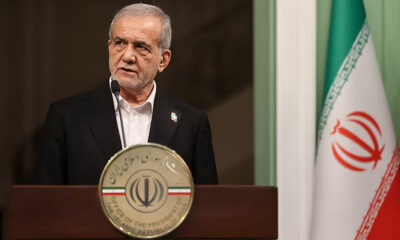
 World4 days ago
World4 days agoIran’s President to Trump: I will not negotiate, ‘do whatever the hell you want’
-
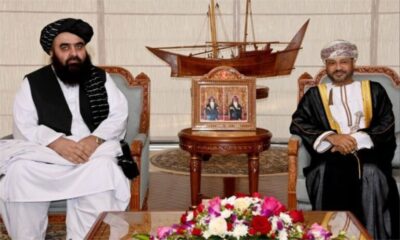
 Latest News5 days ago
Latest News5 days agoAfghanistan’s foreign minister meets with Omani counterpart for talks
-

 Sport4 days ago
Sport4 days agoAsian Cup: Afghanistan’s beach soccer team arrives in Thailand
-
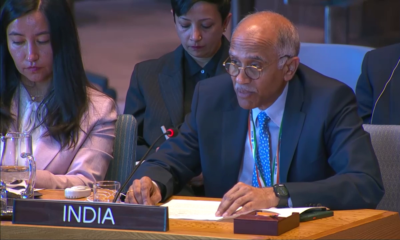
 Latest News3 days ago
Latest News3 days agoIndia says ‘special’ ties have been foundation of engagement with Afghanistan
-
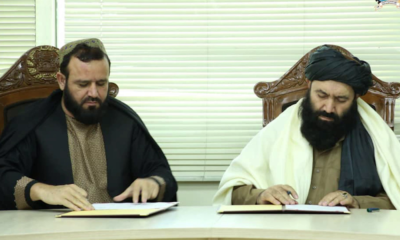
 Latest News2 days ago
Latest News2 days agoMoRRD signs deal for Wakhan road construction


